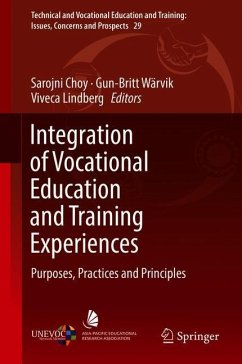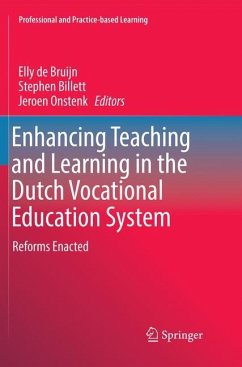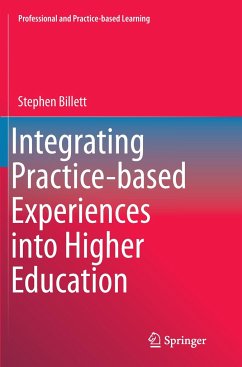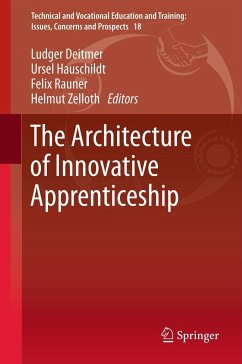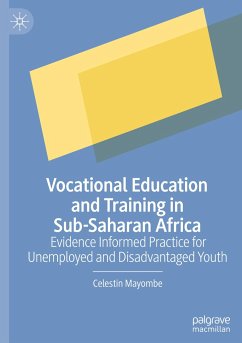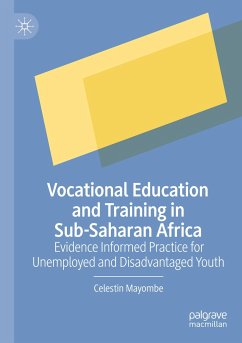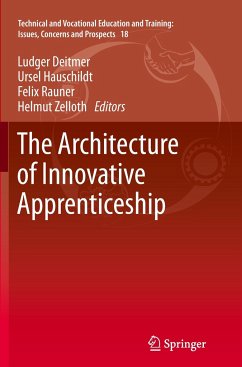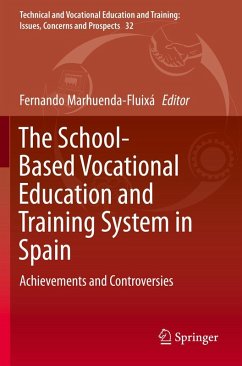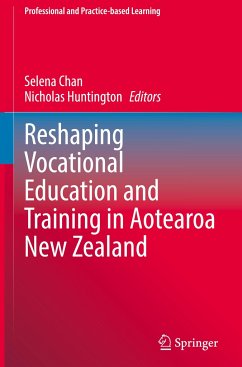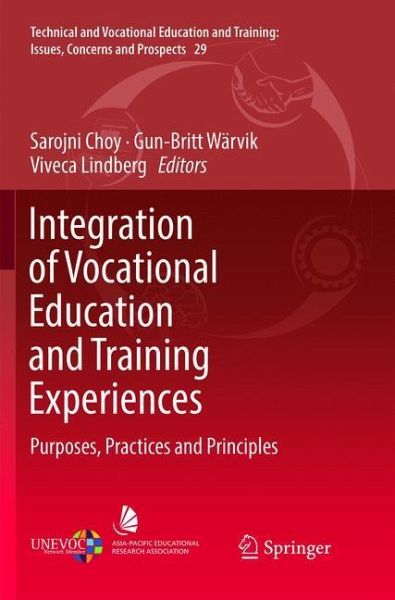
Integration of Vocational Education and Training Experiences
Purposes, Practices and Principles
Herausgegeben: Choy, Sarojni; Wärvik, Gun-Britt; Lindberg, Viveca
Versandkostenfrei!
Versandfertig in 6-10 Tagen
98,99 €
inkl. MwSt.

PAYBACK Punkte
49 °P sammeln!
This book draws on experiences from a range of vocational education systems in different nation states and re-examines the purpose of providing experiences outside educational institutions; the kinds and extent of those experiences; and efforts made to ensure the integration of students' experiences across sites. Analyses of the various vocational education systems, their purposes and practices across nations, and challenges experienced by different stakeholders illustrate different approaches to the integration of learning at different sites. The book includes a consideration of what constitu...
This book draws on experiences from a range of vocational education systems in different nation states and re-examines the purpose of providing experiences outside educational institutions; the kinds and extent of those experiences; and efforts made to ensure the integration of students' experiences across sites. Analyses of the various vocational education systems, their purposes and practices across nations, and challenges experienced by different stakeholders illustrate different approaches to the integration of learning at different sites. The book includes a consideration of what constitutes the integration and reconciliation of experiences, and their attendant educational implications. This extends an appraisal of the concepts of integration, reconciliation, curriculum and work readiness, each of which has a range of connotations. Integration or reconciliation is differentiated from transfer of learning, which is commonly based on simple assumptions that the educational institutions will provide theory and that the workplaces will provide practice from the workplaces, and that the two can be easily linked by students. The contributions from different nation states clearly demonstrate that integration is a collaborative process and requires the agency of stakeholders operating at global, national and specific learning site levels.



